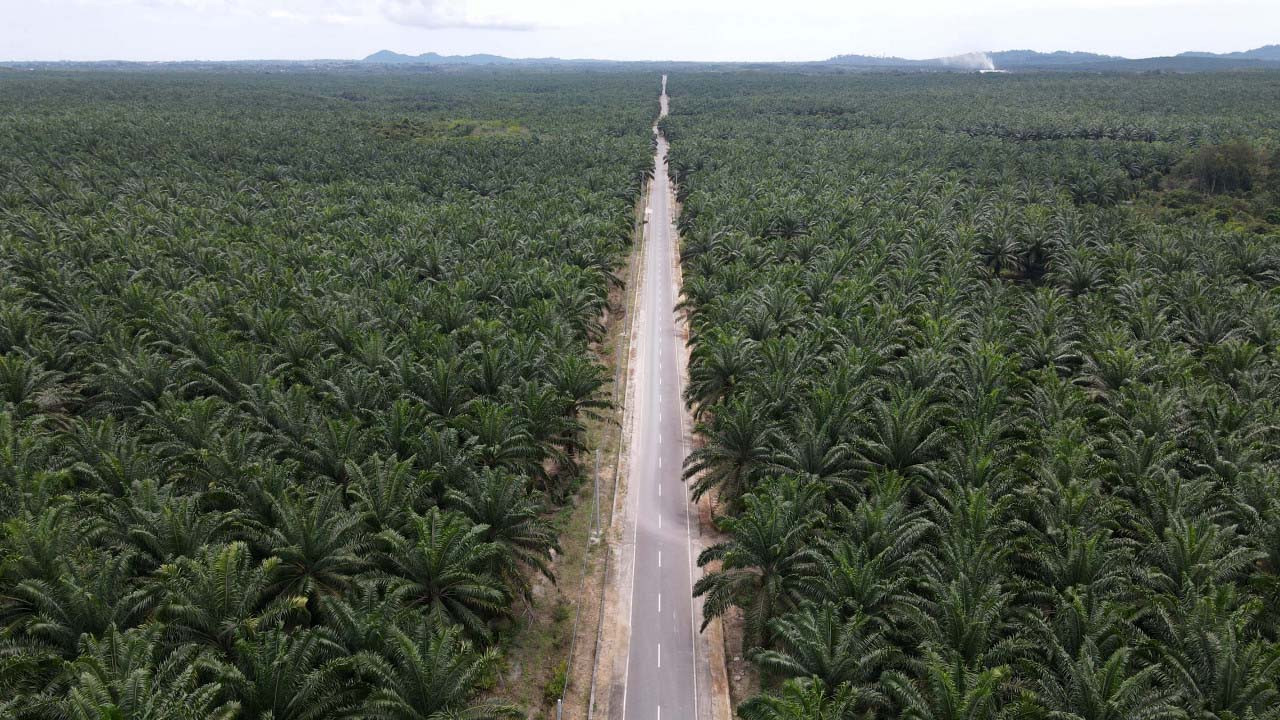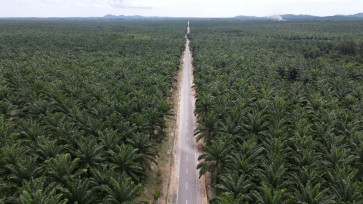Popular Reads
Top Results
Can't find what you're looking for?
View all search resultsPopular Reads
Top Results
Can't find what you're looking for?
View all search resultsIndonesian biofuel drive still threatens forests, climate target: Report
Indonesia's policy on palm-based biofuel development might lead to further forest loss as plantations need to expand to fulfill national needs, international non-profit group CDP has suggested.
Change text size
Gift Premium Articles
to Anyone
I
ndonesia’s elevation of biodiesel as a renewable energy source might, in turn, jeopardize its climate policy as the country’s prevailing policy regarding the fuel increases the risk of deforestation, a recent report has revealed.
The government is pushing for mandatory use of diesel fuel blended with 30 percent palm-based biofuel, known as the B30 biodiesel fuel. For the next step, authorities are expecting to roll out B40 biodiesel with 40 percent biofuel blend by 2022.
The B30 policy plays an important role in the government’s efforts to slash oil imports and to open new markets for its palm oil exports. It is also expected to support the country in its goal to transition away from fossil fuel-based energy sources.
But a report recently published by international non-profit organization the CDP suggests that the country’s biofuel policies are not in alignment with environmental-protection policies.
The group’s senior global policy manager for forests Helen Finlay acknowledged the biofuels’ role in Indonesia’s energy transition from fossil fuels.
“However, it is important that they are developed in a way that does not undermine climate and development goals,” Finlay told The Jakarta Post in a recent interview.
Read also: Biodiesel for climate change mitigation, energy security?


















